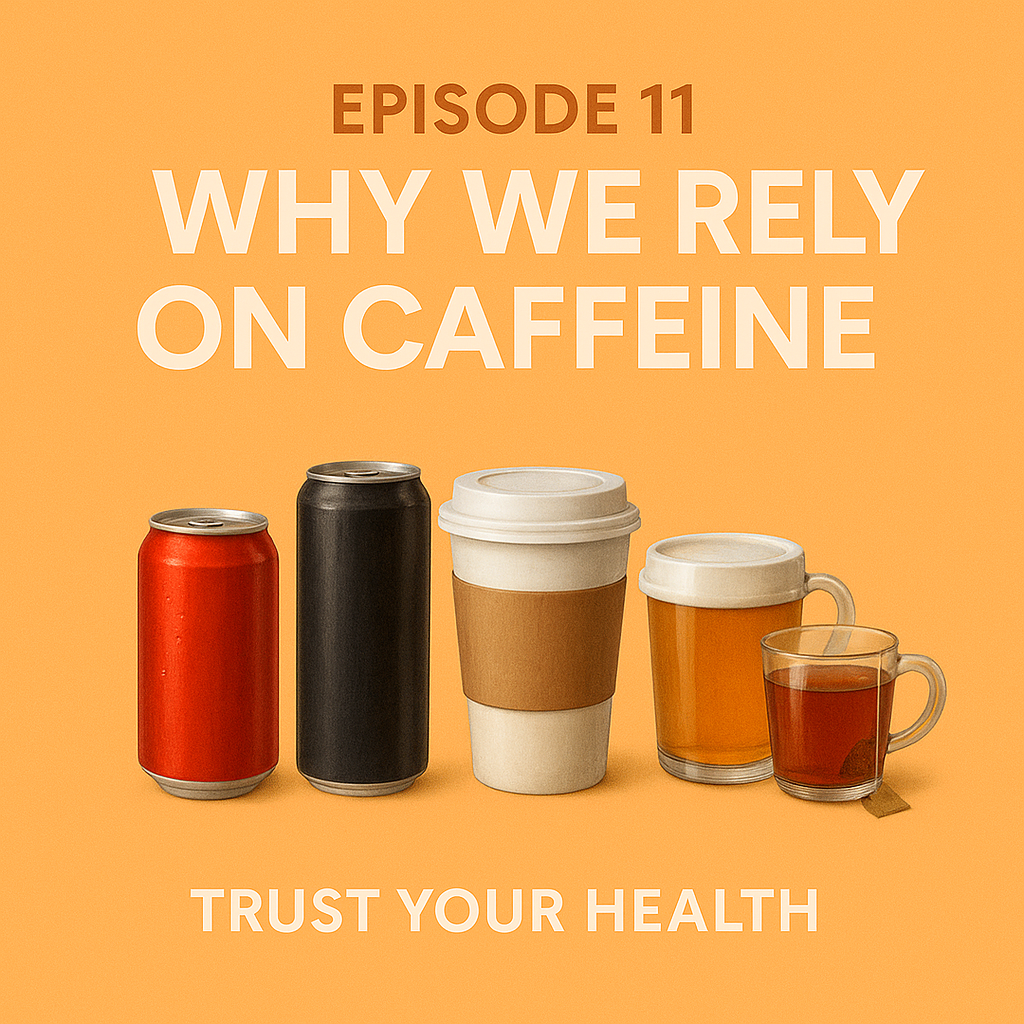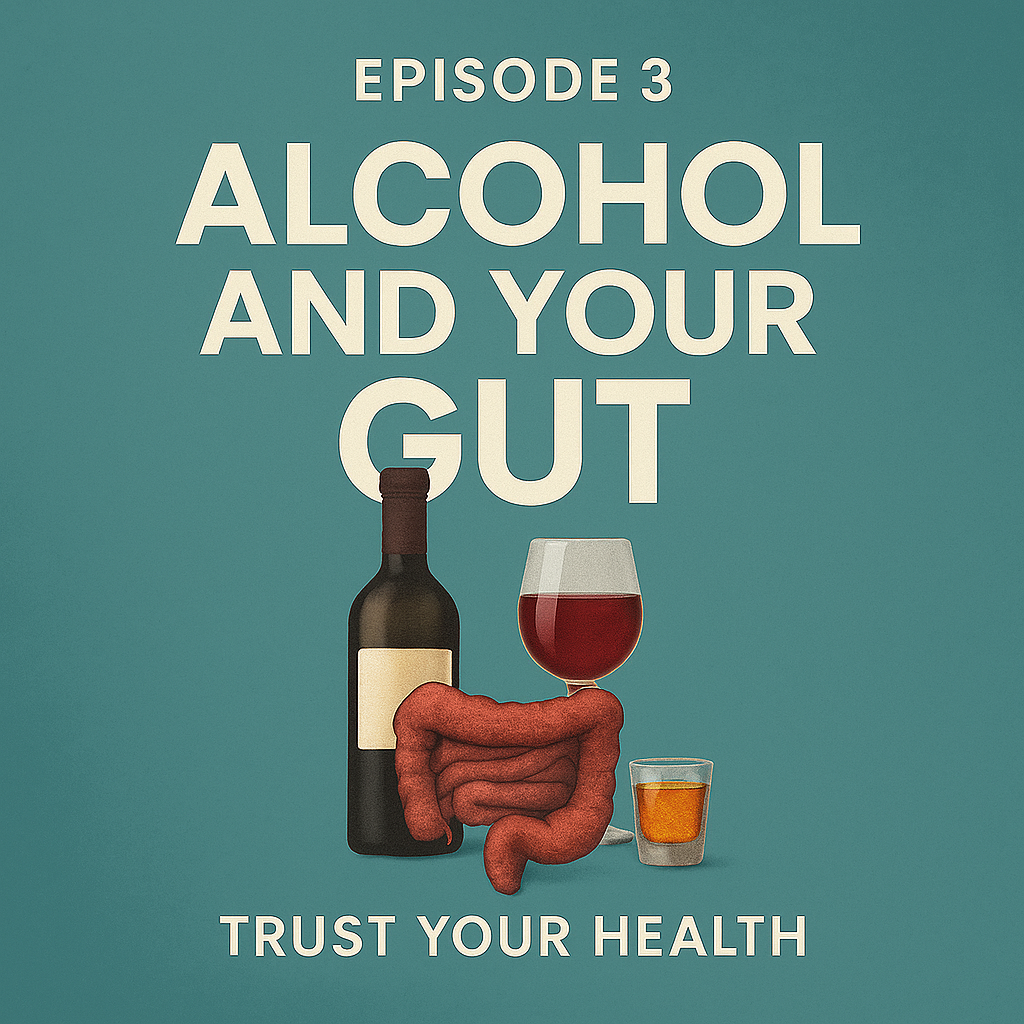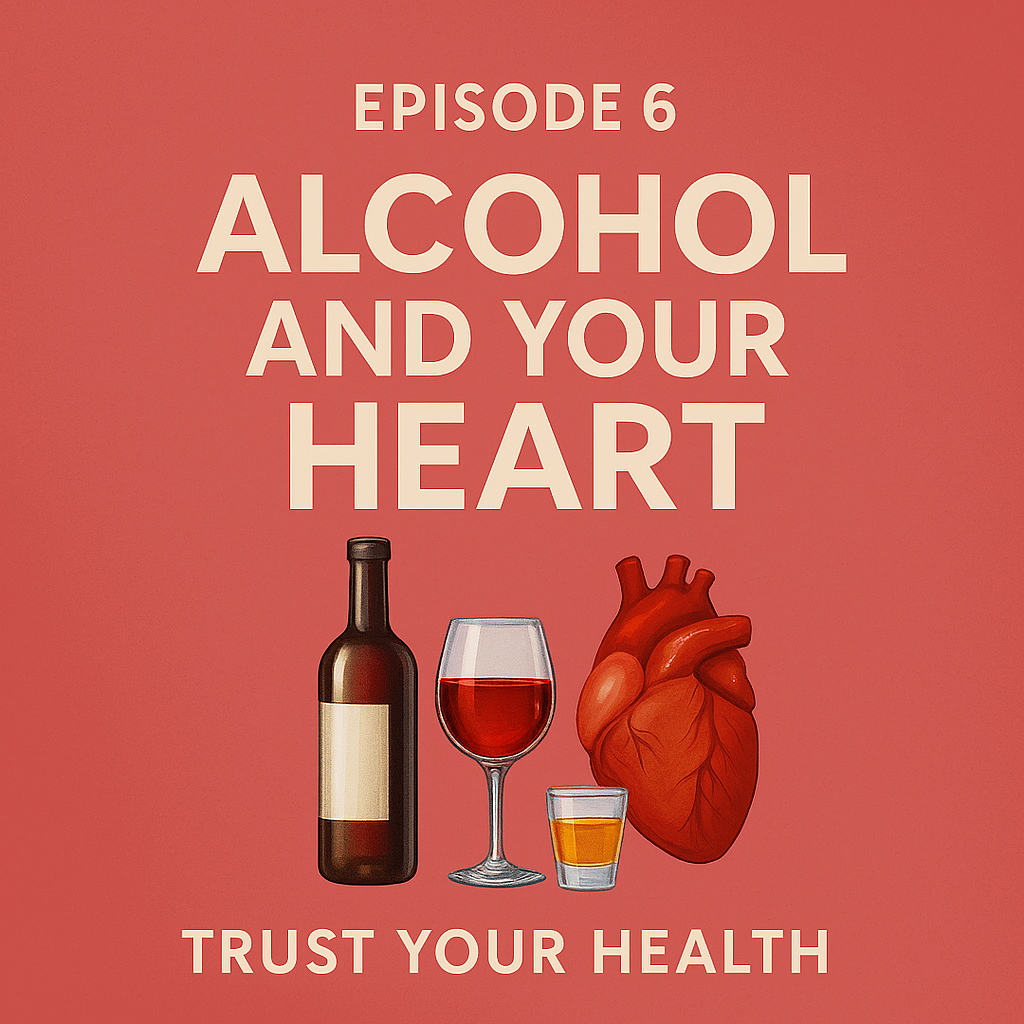Episode Transcript
Alcohol doesn’t just affect your body — it changes how you think, feel, and even sleep. And the effects go far beyond what you notice after just a few drinks.
In this episode of Trust Your Health, we’re looking at what alcohol really does to your brain — from foggy thinking and memory lapses to mood swings, poor sleep, and long-term changes to your nervous system.
Let’s start with the obvious. Alcohol is a depressant, which means it slows down activity in your brain and nervous system. That’s why people feel more relaxed, less inhibited, and slower to react after a drink.
But that slowing down comes with a cost. Even moderate drinking can impair your ability to concentrate and process information. That’s what we call brain fog — when your thinking feels cloudy, and simple tasks feel harder than they should.
Alcohol changes your brain chemistry almost immediately. It enhances the effects of a neurotransmitter called GABA — which quiets brain activity and makes you feel calm or sleepy. At the same time, it suppresses glutamate — a chemical that normally keeps you alert and focused. This double effect slows your thinking and coordination.
It also increases dopamine in your brain’s reward center, which is why you feel good at first. But over time, repeated drinking can lower your brain’s natural dopamine levels, leaving you feeling flat, anxious, or even depressed when you’re not drinking.
Regular drinking also affects serotonin, another chemical tied to mood and well-being — which helps explain why many people feel moody or down the day after drinking.
Over time, alcohol can start to damage the parts of your brain responsible for memory and learning — especially an area called the hippocampus. This is why people who drink heavily often struggle with memory loss or blackouts.
And then there’s sleep. Alcohol can help you fall asleep faster — but it disrupts your sleep cycles, especially REM sleep, leaving you feeling more tired and less refreshed the next day.
Long-term, heavy drinking can even shrink brain tissue and lead to permanent changes in mood, memory, and coordination.
The good news? Many of these effects are reversible if you cut back or stop drinking. Studies show that within weeks of reducing alcohol, people report clearer thinking, more stable moods, better sleep, and sharper memory.
So if you’ve been noticing brain fog, forgetfulness, or feeling emotionally off, it may not just be stress — alcohol could be playing a bigger role than you think.
In our next episode, we’ll move from the brain to the heart — and talk about how even small amounts of alcohol can hurt over time.
Thanks for listening to Trust Your Health. Because trusting your health begins by understanding your body.
Be sure to follow the podcast so whenever you need clear, honest advice about your body, we’ll be here to help you make sense of it.


